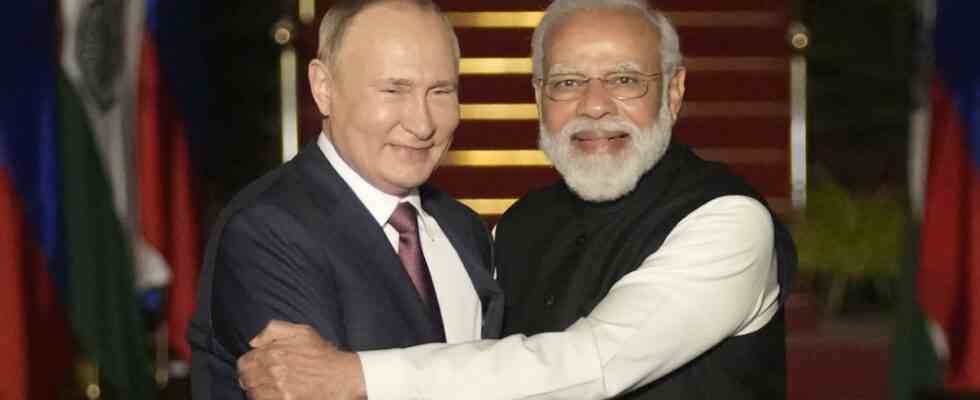When your friend’s friend suddenly decides to cause trouble, even more so when he starts a war in Europe and invades a neighboring country, then there is more need for discussion.
Germany maintains friendly relations with India. But what will soon be the most populous country on earth is also closely linked to Russia. And despite the Russian war of aggression against Ukraine, it apparently intends to stay that way. At least that’s how the signals from Indian politics over the past few weeks can be interpreted. For the visit of Indian Prime Minister Narendra Modi to Berlin, this means very complicated talks and possibly one or the other upset.
India does not want to participate in the sanctions, insisting on neutrality. And it is unlikely that this visit will change anything.
The worst would be if India and Europe became alienated
It is true that Germany and India have many interests in common, ranging from trade and climate protection to initiatives by democratic states to put an authoritarian and sometimes aggressively expanding China in its place. But now Putin’s war has pushed itself between Berlin and Delhi like a giant block.
From a Western point of view, this may cast such a large shadow that all other similarities are no longer so easy to spot. And yet there are good reasons not to make this block the measure of all things. Because even worse than an India that doesn’t want to distance itself from Putin would be an India that alienates itself from Europe after a long and often tough rapprochement. This country is just too big and too important to risk breaking. Especially since it doesn’t look as if Delhi is actually in a position to substantially strengthen Putin.
It’s true: sanctions need broad participation in order to exert pressure. But just as Germany is struggling to replace Russian gas, India has entered a web of dependencies with Russia that create massive constraints. Delhi has stocked up on Russian weapons for decades, and this device needs maintenance and spare parts. A break with Moscow jeopardized that. In a country that finds itself increasingly encircled by China and also has the legacy of an ongoing Indo-Pakistani conflict, it is not surprising that India is reluctant to break with Putin.
Delhi insists on independence. It has to be respected
In the medium term, Indian fears can be allayed if the country has the opportunity to diversify its military equipment more. That’s already happening, and the trend could be accelerated by the Ukraine war if the hurdles to doing business with Putin continue to mount.
However, Europe must give India time and space to readjust its geopolitics. It can offer incentives for this, for example in trade and cooperation for green energy. But it’s also important to strike the right note here. Because in South Asia there are still many post-colonial sensitivities, Delhi insists on independence. And Europeans would do well to respect that.
In Berlin people are staring at Moscow, but in Delhi their gaze is fixed on Beijing: that’s where the threat to the future lies – from an Indian point of view. However, this front position binds India to the West for existential reasons alone. And Europe also needs India as a partner if it wants to contain the threats posed by climate change. As difficult as discussions about Putin may be. Impatience would now be the greatest poison.

